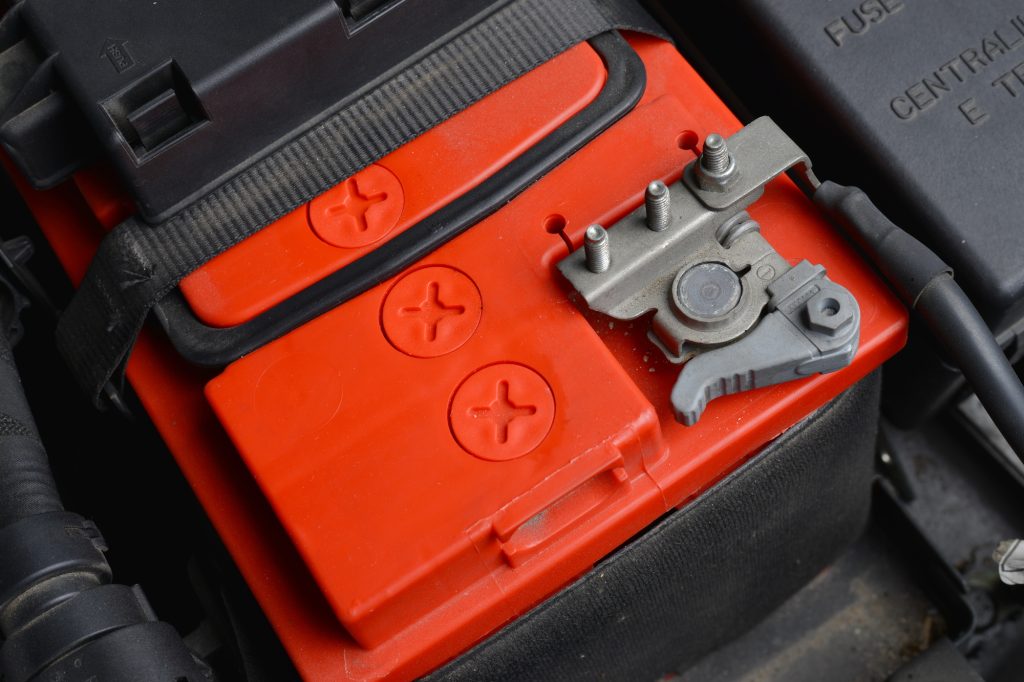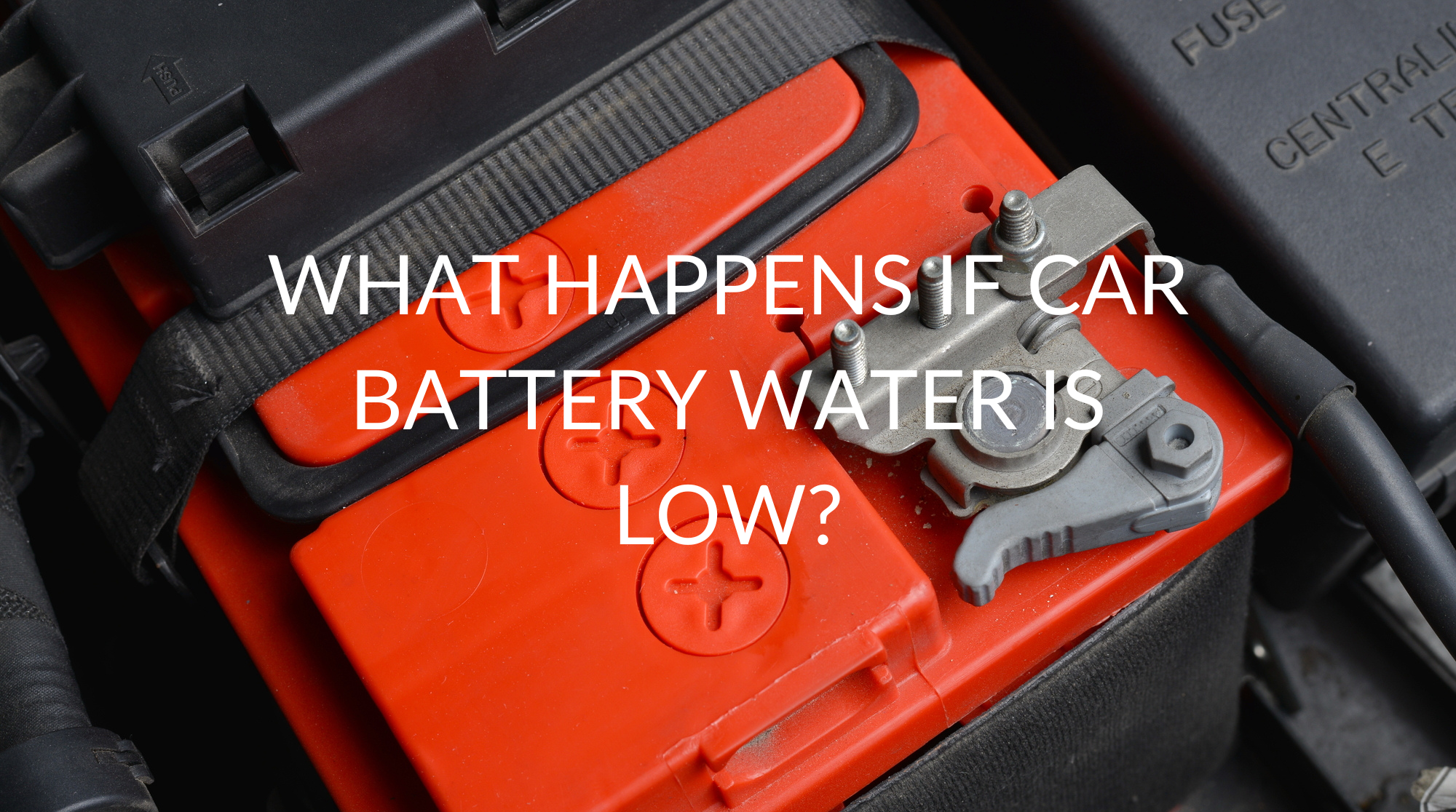If your car’s battery water is too low, then a number of things are likely to end up going t wrong with it. In this article, not only will you find out what happens when the water is too low, but you’ll also learn the symptoms, how often to check, and much much more!
So keep reading to find out everything you need to know!
What Happens If Your Car Batteries Water Is Low?
If the car battery water is low, it can cause significant damage to the battery and may even lead to a complete failure. The effects of a low water level include:
Reduced Capacity And Performance
Low water levels reduce the active surface area of the plates, which reduces the battery’s capacity and performance.
Sulfation Buildup
Low water levels make it harder for sulfuric acid to move between cells, leading to sulfation buildup and a decrease in battery life.
Corrosion Of Internal Parts
Without enough water, exposed metal parts can corrode and lead to internal short-circuiting.
Increased Risk Of Thermal Runaway
The reduced cooling capabilities of a low-water battery increase the risk of thermal runaway, which is when the battery’s temperature rises uncontrollably. This can result in severe damage to the battery cells and may even start a fire.
Short-circuiting Between Cells
Without enough water, the battery’s cells can come into contact with each other, leading to internal short-circuiting.
For these reasons, it is important to regularly check and maintain the water level of your vehicle’s battery. It should be topped off regularly with distilled water as needed in order to keep it running optimally.
Gassing
If the battery is gassing excessively, this may indicate that it’s overcharged or that its water levels are too low. In either case, it will need to be checked and adjusted as needed.

What Are The Symptoms Of Low Water In Car Batteries?
Check Engine Light Illuminating
If your vehicle’s check engine light is illuminated, it could be a sign that the battery water levels are low.
Diminished Battery Performance
Low water levels can reduce the capacity and performance of the battery, resulting in slower cranking or starting.
Gassing
An excess amount of gas being released from the battery cells indicates that the battery is overcharging or has low water levels.
A Sulfur Smell
If you smell a sulfur-like odor coming from the battery, it could be an indication of low water levels in the cells.
Cracked Or Damaged Plates
Low water levels can cause the battery plates to crack or become damaged, which can lead to internal short-circuiting.
Corrosion On Battery Terminals
Low water levels can lead to increased corrosion on the terminal posts, which can lead to a decrease in performance and capacity.
Slow/No Crank
If the battery is slow to crank or doesn’t crank at all, it could be due to low water levels.
Dimming Lights
Battery water levels can also lead to dimming car lights, which could be an indication of a low-water battery.
Battery/Alternator Light Flickering
If the car’s battery light is flickering, it could be a sign that the water levels are too low.
Electrical Problems
Low water levels can cause a variety of electrical problems, such as car stalling or the car not starting.
How To Check The Water Level In Your Battery
It’s important to periodically check your car battery and make sure that it has a sufficient amount of water. To do this, you’ll need to remove the battery caps and check the water level with a flashlight. If the water is below the top of the plates, then it’s time to add more distilled water. Be sure to only use distilled water when topping off car batteries – regular tap water could contain minerals that can damage car battery internals.
When Should You Check Your Water Levels?
It’s best to check the car battery water level every month or whenever you notice any of the symptoms mentioned above. To ensure optimal performance and longevity, it is important to keep car batteries topped up with distilled water regularly.
Will Adding Water To A Battery Fix It?
Adding water to car batteries may not fix the underlying issue. It’s important to have a professional check the car battery and diagnose the problem before attempting any repairs or maintenance. If the car battery is simply low on water, then topping it off with distilled water can help restore its performance and capacity. If there are other issues present, such as corrosion, then the car battery may need to be serviced or replaced to restore it to optimal functioning.
Why Would My Car Battery Be Losing Water?
Car batteries can lose water for several reasons, including overcharging, excessive vibration, and extreme temperatures. It’s important to check car battery water levels regularly and top them off with distilled water as needed in order to ensure optimal performance.
How Often Do Deep Cycle Batteries Need Water?
Deep cycle car batteries should be checked and topped off with distilled water about once or twice a month. It’s also important to check if the car battery is overcharging or discharging too quickly, in which case it will need to be serviced or replaced.
What Happens If Distilled Water Is Low In Battery?
If car battery water levels are low, this can result in diminished battery performance, gassing, a sulfur smell, cracked or damaged plates, corrosion on the terminals posts, slow/no cranking times and dimming car lights. It’s important to periodically check car battery water levels and only use distilled water when topping off car batteries.
What Happens If Your Lead Acid Battery Runs Out Of Water
If a lead acid battery runs out of water, it can lead to a decrease in performance and capacity, car stalling or the car not starting, and corrosion on the posts and terminals. It’s important to check car battery water levels regularly and only use distilled water when topping off car batteries.
In The Future
To prevent these issues, it is important to check the water level in your car battery regularly and top up with distilled water as needed.
Doing so will extend its life and ensure optimal performance. It is also important to use the correct type of charger when charging your battery, as incorrect settings can cause damage or even.
Recap
If car battery water is too low, it can lead to car stalling or the car not starting, corrosion on the posts and terminals, diminished performance and capacity, gassing, a sulfur smell, slow/no cranking times, and dimming car lights.
It’s important to check car battery water levels regularly and only use distilled water when topping off car batteries. Doing so will help prevent these issues and ensure optimal car performance. Additionally, it is important to use the correct type of charger when charging your car battery in order to avoid damage or other issues.
Happy driving!

